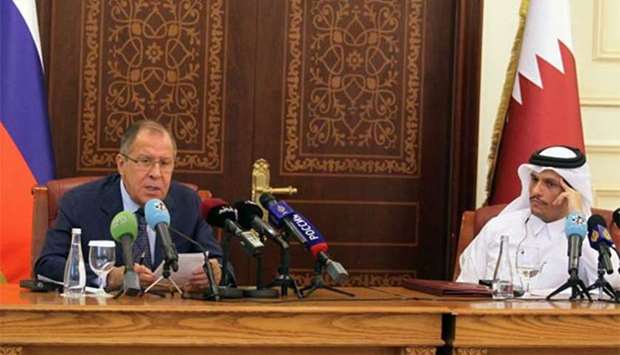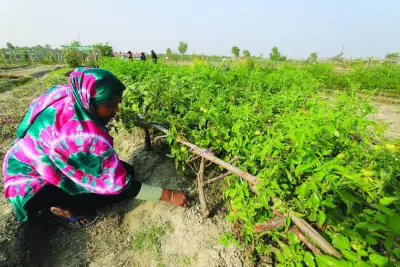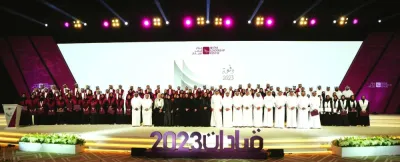HE the Foreign Minister Sheikh Mohamed bin Abdulrahman al-Thani on Wednesday reiterated that Qatar welcomed any effort to support the mediation process undertaken by the Kuwaiti Emir to resolve the current Gulf crisis, adding that Qatar also welcomed the Russian efforts and the Russian position in this regard.
Addressing a joint press conference with Russian Foreign Minister Sergey Lavrov, he stressed that Qatar is still firm on its belief that the crisis can only be resolved through a constructive dialogue and not by dictates or by submitting lists of demands that breach the country's sovereignty or the international law.
"Unfortunately, we have seen nothing but the opposite, and it is very clear that the siege countries have so far failed to provide any evidence in this crisis, which was based on a hacking that involved those countries themselves," the foreign minister said.
Sheikh Mohamed said he briefed his Russian counterpart on the Kuwaiti initiative and the letters sent by Kuwaiti Emir Sheikh Sabah al-Ahmad al-Jaber al-Sabah to all the parties. Qatar was the only country to respond. "The proposals submitted by the US Secretary of State's envoys were also ignored by the siege countries. Such an approach shows their intentions to continue the crisis and siege," he said.
The Foreign Minister described his talks with Lavrov as fruitful, noting that His Highness the Emir Sheikh Tamim bin Hamad al-Thani met the Russian Foreign Minister and discussed ways of enhancing the relations between the two friendly countries.
Sheikh Mohamed said Qatar has expressed its desire to resolve the crisis through dialogue more than 12 times, but the siege countries always put conditions for talks.
He said after three months of the crisis, the matter has become a problem between the siege countries and the people of Qatar rather than a government-to-government issue.
Sheikh Mohamed said the real impact of the siege was on the humanitarian field after the measures of the siege countries led to the separation of families, the removal of students from universities and the removal of businessmen from their investments.
However, the siege motivated businessmen to seek alternatives. "Today there are broad alternatives and consumer choices in Qatar as we witness diversification in the Qatari market and openness to the global markets. We realised that the State of Qatar must be self-reliant on food security and on matters related to its economy," he underlined.
The Russian Foreign Minister stressed the need to find solutions to the Gulf crisis on the basis of reaching consensus and positions acceptable to all, and rejecting the offensive and useless speeches.
He emphasised Russia's support for the Kuwaiti mediation, and its readiness to contribute to any effort in this regard. "Russia is keen on preserving the unity and strength of the Gulf Co-operation Council (GCC) to be able to find solutions to other problems in the region that are already aggravated.
Lavrov stressed that Russia is not raising any new ideas different from the Kuwaiti mediation and the US efforts in this regard. Russia will continue its contact with all parties in the framework of co-ordination, he said noting that he will visit Saudi Arabia and Jordan early next month.
The Russian Foreign Minister said his talks in Doha touched upon the pressing regional issues, including Syria, Libya and Iraq. The Qatari and Russian sides have a common position on all these issues, which calls for resolving these crises on the basis of dialogue only.
Lavrov said Russia is concerned about the impasse in the Palestinian-Israeli settlement, and stressed the need to find solutions through direct dialogue and on the basis of the Arab peace initiative.
He praised the Russian-Qatari relations, noting that he discussed means of enhancing these relations in various fields in the framework of the agreements reached between the two countries, especially after the recent visit by His Highness the Emir Sheikh Tamim bin Hamad al-Thani to Moscow, as well as the continuous contacts between the two leaderships of the two countries.
"The meeting of the joint committee for economic and technical co-operation in Doha last April, together with the renewal of the Russian-Qatari business council will eventually result in supporting economic co-operation."
About the Iranian and Syrian co-operation, he explained that any bilateral co-operation that does not violate the principles of the international law should not be a subject of questions.
"Unfortunately, we have seen nothing but the opposite, and it is very clear that the siege countries have so far failed to provide any evidence in this crisis, which was based on a hacking that involved those countries themselves," the foreign minister said.
Sheikh Mohamed said he briefed his Russian counterpart on the Kuwaiti initiative and the letters sent by Kuwaiti Emir Sheikh Sabah al-Ahmad al-Jaber al-Sabah to all the parties. Qatar was the only country to respond. "The proposals submitted by the US Secretary of State's envoys were also ignored by the siege countries. Such an approach shows their intentions to continue the crisis and siege," he said.
The Foreign Minister described his talks with Lavrov as fruitful, noting that His Highness the Emir Sheikh Tamim bin Hamad al-Thani met the Russian Foreign Minister and discussed ways of enhancing the relations between the two friendly countries.
Sheikh Mohamed said Qatar has expressed its desire to resolve the crisis through dialogue more than 12 times, but the siege countries always put conditions for talks.
He said after three months of the crisis, the matter has become a problem between the siege countries and the people of Qatar rather than a government-to-government issue.
Sheikh Mohamed said the real impact of the siege was on the humanitarian field after the measures of the siege countries led to the separation of families, the removal of students from universities and the removal of businessmen from their investments.
However, the siege motivated businessmen to seek alternatives. "Today there are broad alternatives and consumer choices in Qatar as we witness diversification in the Qatari market and openness to the global markets. We realised that the State of Qatar must be self-reliant on food security and on matters related to its economy," he underlined.
The Russian Foreign Minister stressed the need to find solutions to the Gulf crisis on the basis of reaching consensus and positions acceptable to all, and rejecting the offensive and useless speeches.
He emphasised Russia's support for the Kuwaiti mediation, and its readiness to contribute to any effort in this regard. "Russia is keen on preserving the unity and strength of the Gulf Co-operation Council (GCC) to be able to find solutions to other problems in the region that are already aggravated.
Lavrov stressed that Russia is not raising any new ideas different from the Kuwaiti mediation and the US efforts in this regard. Russia will continue its contact with all parties in the framework of co-ordination, he said noting that he will visit Saudi Arabia and Jordan early next month.
The Russian Foreign Minister said his talks in Doha touched upon the pressing regional issues, including Syria, Libya and Iraq. The Qatari and Russian sides have a common position on all these issues, which calls for resolving these crises on the basis of dialogue only.
Lavrov said Russia is concerned about the impasse in the Palestinian-Israeli settlement, and stressed the need to find solutions through direct dialogue and on the basis of the Arab peace initiative.
He praised the Russian-Qatari relations, noting that he discussed means of enhancing these relations in various fields in the framework of the agreements reached between the two countries, especially after the recent visit by His Highness the Emir Sheikh Tamim bin Hamad al-Thani to Moscow, as well as the continuous contacts between the two leaderships of the two countries.
"The meeting of the joint committee for economic and technical co-operation in Doha last April, together with the renewal of the Russian-Qatari business council will eventually result in supporting economic co-operation."
About the Iranian and Syrian co-operation, he explained that any bilateral co-operation that does not violate the principles of the international law should not be a subject of questions.



